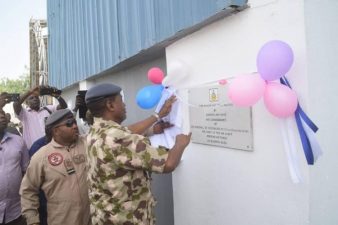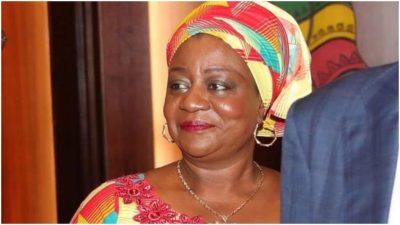By BASHIR ADEFAKA
The Attorney General of the Federation and Minister of Justice of Nigeria, Mallam Abubakar Malami (SAN), says the National Assembly of the country lacks the constitutional power to summon the President, Muhammadu Buhari.
The DEFENDER reports that the House of Representatives had, last week, passed a resolution after which it issued a summon on the president, with intent, following the killing by Boko Haram insurgents of 43 farmers in Borno State, to make him address Nigerians through its floor on his efforts at stopping insecurity in the country.
It was learned that the President agreed to appear, after shunning the House summon, until it lately emerged his honouring the House summon had been shrouded in uncertainty.
In a statement on Wednesday, Mallam Malami said the National Assembly was operating outside the constitutional bounds to have ventured to summon the President over his “operational use of the armed forces”.
Copy of the statement titled “Buhari’s Summon: NASS Operates Outside Constitutional bounds” and obtained by The DEFENDER said:
“President Muhamamdu Buhari of the Federal Republic of Nigeria has recorded tremendous success in containing the hitherto incessant bombing, colossal killings, wanton destruction of lives and property that bedeviled the country before attaining the helm of affairs of the country in 2015.
“The confidentiality of strategies employed by the President as the commander in Chief of the Armed Forces of the Federal Republic of Nigeria is not open for public exposore in view of security implications in probable undermining of the war against terror.
“The fact that President Muhammadu Buhari was instrumental to the reclaiming of over 14 Local Governments previously controlled by the Boko Haram in North East is an open secret, the strategies for such achievement are not open for public expose.
“While condoling the bereaved and sympathizing with the victims of the associated insecurity in the country, Attorney-General of the Federation and Minister of Justice, Abubakar Malami, SAN maintained that national security is not about publicity and the nation’s security architecture cannot be exposed for the sake of getting publicity.”
The Attorney General said, “Mr. President has enjoyed Constitutional privileges attached to the Office of the President including exclusivity and confidentiality investiture in security operational matters, which remains sacrosanct.”
Mallam Abubakar Malamu added that the National Assembly has no Constitutional power to envisage or contemplate a situation where the President would be summoned by the National Assembly on operational use of the Armed Forces.
He clarified things saying, “The right of the President to engage the National Assembly and appear before it is inherently discretionary in the President and not at the behest of the National Assembly.
“The management and control of the security sector is exclusively vested in the President by Section 218 (1) of the Constitution as the Commander in Chief of the Armed Forces including the power to determine the operational use of the Armed Forces. An invitation that seeks to put the operational use of the Armed Forces to a public interrogation is indeed taking the constitutional rights of law making beyond bounds.
“As the Commander in Chief, the President has exclusivity on security and has confidentiality over security. These powers and rights he does not share. So, by summoning the President on National Security operational Matters, the House of Representative operated outside constitutional bounds. President’s exclusivity of constitutional confidentiality investiture within the context of the constitution remains sacrosanct,” the Attorney General said in the statement dated 9th December, 2020.




